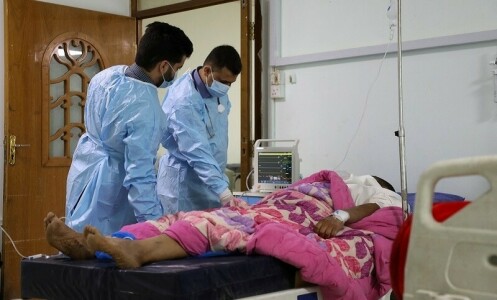ISLAMABAD: As the sale of sacrificial animals has started, the National Institute of Health (NIH) has issued an advisory regarding prevention and control of Crimean Congo Haemorrhagic Fever in the run-up to Eidul Azha.
Congo virus is a tick-borne viral disease, with symptoms such as high fever, muscle pain, dizziness, abnormal sensitivity to light, abdominal pain and vomiting. The patient might die in the absence of timely treatment.
Ticks feeding on the hairs of an animal can infect it by biting it. The saliva and blood of the animal get contaminated and can infect humans if they touch them.
“Public health advice should focus on several aspects such as protective clothing (long sleeves, long trousers), light-coloured clothing to allow easy detection of ticks and use of approved insect repellent on the skin as they are the most effective in warding off ticks,” the NIH advisory said.
Another NIH advisory alerted the public to the danger posed by Naegleriasis Fowleri, popularly known as brain-eating amoeba. “During recreational activities like swimming, avoid diving and getting water up in the nose. Try to avoid water-related activities when the water is not chlorinated. Empty and clean small collapsible bathing pools daily,” it said.
“With three cases this year, the total number of cases has climbed up to 150 in the country over the last 15 years,” it said.
Published in Dawn, June 14th, 2023













































Dear visitor, the comments section is undergoing an overhaul and will return soon.